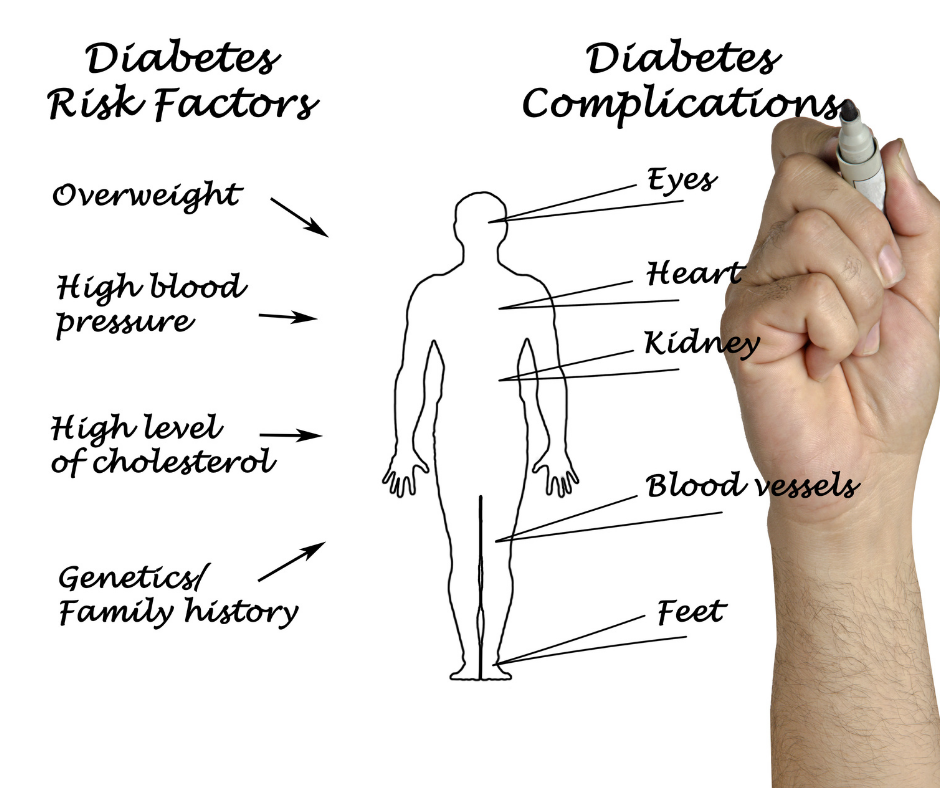It’s estimated that more than 5 million people have diabetes in the UK and a further 2.4 million are now at increased risk of type 2 diabetes – far too many considering it can, in some cases, be completely preventable with a few simple lifestyle changes.
Research has consistently shown that combined interventions including a healthy diet, regular physical activity and body fat loss/maintenance, can be effective in reducing the risk of developing type 2 diabetes at all – and even can put it into remission.
Now our Wellbeing Coaches break down some of the key signs, symptoms and causes of type 2 diabetes – and reveal how a change in lifestyle could make all the difference…
What is it?
Put simply, type 2 diabetes is when the body produces insufficient levels of a hormone called insulin and/or when the organs and tissues of the body lose their sensitivity to the action of insulin (known as insulin resistance). This in turn leads to there being too much glucose in the blood.
What causes this?
Up to 90% of cases are associated with living with overweight or obesity. Carrying an excessive amount of abdominal fat is a major risk factor. A sedentary lifestyle also increases the risk of insulin resistance, while other risk factors for developing type 2 diabetes include genetic predisposition and old age.
Warning signs and symptoms:
There are several warning signs to look out for, including excessive thirst, needing to pee a lot and increased tiredness. You may also find yourself losing weight without trying to, noticing that cuts or wounds take longer to heal or begin suffering with blurred vision.
What it can cause:
Type 2 diabetes can increase your risk of developing serious problems with your eyes, heart, kidneys, blood vessels, feet and nerves.
These can include, and are not limited to, Cerebrovascular disease – which refers to any abnormality in the brain caused by problems with the blood vessels, such as stroke – permanent damage to kidneys, foot infections, retinopathy and even blindness, heart attacks and peripheral neuropathy – which causes weakness, numbness and pain in feet and hands.

Can it be cured?
Type 2 diabetes can be sent into remission through dietary and lifestyle changes, but these have to be permanent changes otherwise it will likely return. The condition should be periodically monitored by your GP even if you achieve remission from the disease.
What is the best course of action?
Your GP may prescribe medication and they should be consulted before undertaking major dietary/lifestyle changes. If you are overweight or living with obesity, a substantial amount of weight loss (15kg) has been found to help people achieve remission from type 2 diabetes.
This can be done through regular exercise and a switch to a healthy diet – with guidance from a GP, registered dietitian or registered nutritionist if needed.
Helpful online resources
- Diabetes UK has a number of resources available, including 10 tips for healthy eating with diabetes which you can find here.
You can also call our Support Line on 0800 389 8820 and a member of the Nursing Team may be able to advise. Alternatively, you can register for our app, My Fire Fighters Charity, and visit the ‘Access Support’ tab.




